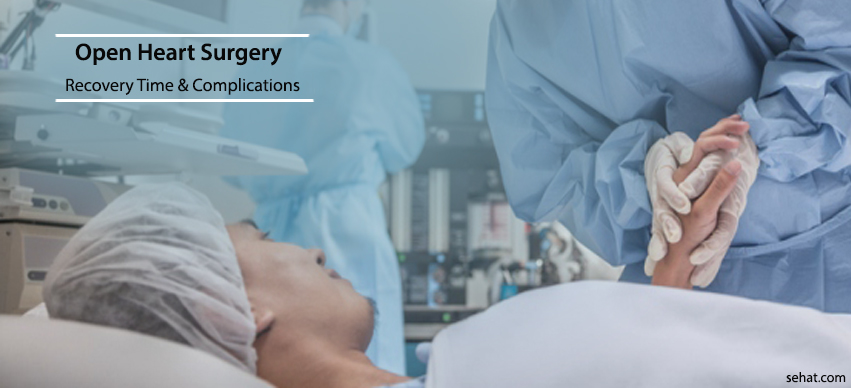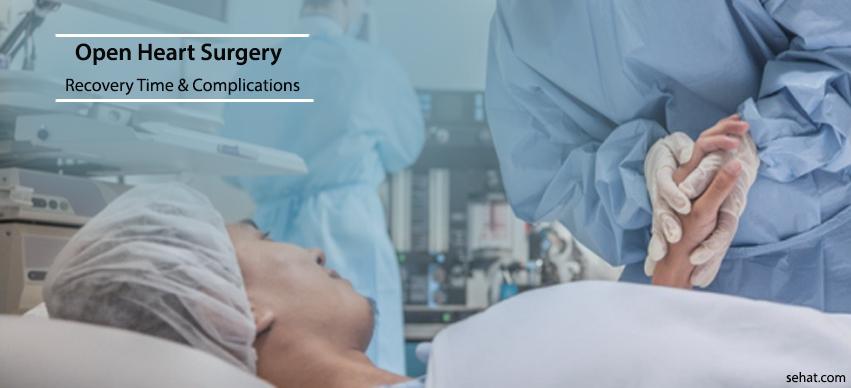How Communities Are Changing the Way We Think About Aging in..
8 Min Read


Open heart surgery is performed to treat cardiac disorders. The disorders may be linked to cardiac muscles, arteries or the valves of the heart. The heart is a vital organ thus, various complications are associated with open-heart surgery, which is associated with the heart or to other organs. The whole recovery from the open-heart surgery takes less time in younger patients as compared to the elderly.
Failure-to-rescue (FTR) is the term used for the death of a patient due to complications following major surgery. Open-heart surgery is considered major surgery and has several complications. The surgery should be accomplished such that the risk of post-operative complications is kept at a minimum, however, the post-operative care also plays an important role in keeping at bay, the operative complexities. Open heart surgery is done to treat various abnormalities in the internal structure of the heart such as valves, heart muscle, aorta or vessels. Some conditions such as gastrointestinal complications and insomnia fade as the patient recover. Below are the various complications associated with open heart surgery:
Heart attack and brain stroke are dangerous complications of open-heart surgery. The risk is high in patients who undergo aortic valve replacement. Further, almost 2-3% of the patient undergoing coronary artery bypass surgery suffers from brain stroke. A brain stroke is a condition that develops when blood flow to the brain becomes insufficient or completely stopped.
Almost 5-20% of the patients who have open heart surgery have reduced kidney function. The ability of the kidney to perform the physiological function gets reduced and, in some cases, dialysis is required to assist the kidneys. Fortunately, in most of the people, the situation is temporary and the kidneys begin to function properly a few weeks after surgery. Acute kidney failure is caused due to various factors involving inflammation, hemodynamics, and nephrotoxicity. Acute renal failure is one of the primary factors that increase mortality in open heart surgery
Chest infection is one of the major complications of open-heart surgery. The risk increases in people who smoke. During the surgery, the bacteria or virus may invade the throat and result in the development of phlegm. However, after the surgery, the patient may not be able to expel the phlegm leading to its build-up in the lungs. This results in a chest infection. The condition can be effectively treated with antibiotics
The patient feels difficulty in concentrate and the decision-making ability gets reduced. The things which the patient was doing effectively prior to treatment may not be so easy after open heart surgery. The condition resolves within a few months in most of the patients, while in rare cases it remains permanently.
Open heart surgery may also result in gastrointestinal complications. Constipation is experienced by some patients. The condition is not permanent and resolves within a few weeks after the surgery.
Infection in the healing wounds is another complication of open-heart surgery. In the coronary artery bypass surgery, leg vein is used, leading to swelling in the legs. Sometimes the liquid may also ooze out from the wounds. Sometimes the chest wound may also contract infection due to improper care of the wound.
Cardiac arrhythmia may also be experienced by the patient undergoing open-heart surgery.
People experience postoperative delirium after cardiac surgery. These patients remain in a confused state and it affects almost 25% of the patient who had undergone cardiac surgery. The factors that increase the risk of delirium include dehydration, infection and reduced blood supply in the brain. Most people completely recover from delirium a few weeks after surgery.
Sleeping may be a problem in such patients at least for a few weeks after surgery. This may be due to chest pain and pain in other affected organs and also because the patient is unable to sleep in a comfortable position due to the chest wound.
Atrial fibrillation occurs in almost 30% of patients with coronary artery bypass graft surgery and in 40% of the patients with valve surgeries.